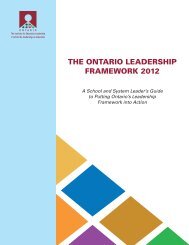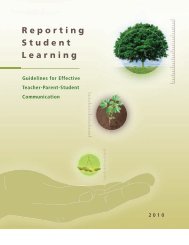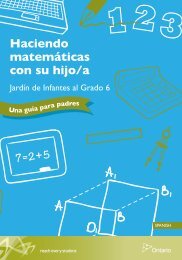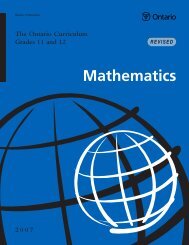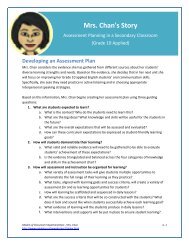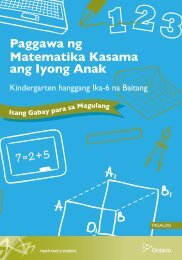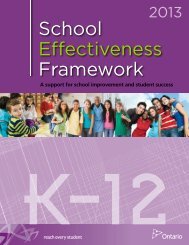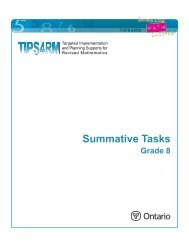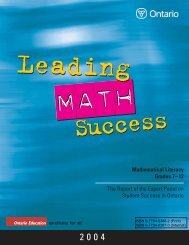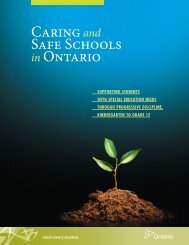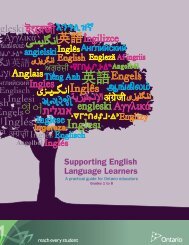Introduction
A Guide to Effective Instruction in Mathematics - eWorkshop
A Guide to Effective Instruction in Mathematics - eWorkshop
Create successful ePaper yourself
Turn your PDF publications into a flip-book with our unique Google optimized e-Paper software.
• How will I know when students have learned the concepts?Assessment should include a range of “evidence” that is directly linked withinstruction. Such assessment will enable teachers to know whether students havelearned the concepts. For example, teachers might use the following assessmentmethods in a unit to collect evidence of student learning:– personal communications with students (e.g., instructional questions andanswers, conferences, interviews)– performance tasks– paper-and-pencil tasks– daily written work– tests and quizzes(The assessment methods listed above are described in the subsection “AssessmentMethods” in Chapter 8: Assessment and Evaluation, in Volume Four.)• How do I record a unit or short-term plan?The template provided in this chapter (see Appendix 3-3) is a generic sampledesigned to help teachers focus their planning on key concepts and skills relatedto curriculum expectations at their grade level.The template is one way of organizing a unit; it may help the teacher navigatethe sections of this guide as they apply to unit planning. Other ways of planningmay be more appropriate to the teacher’s grade, students, or school community.Many school boards have developed their own template for planning. The Ministryof Education’s Ontario Curriculum Unit Planner (available at www.ocup.org) is alsohelpful for developing long-range and unit plans.Daily Lesson PlanningMathematical experiences in the classroom have a profoundeffect on both the attitudes and the understandings of students. Learning mathematics meansThese experiences require careful planning that takes into considerationthe prior knowledge of students, the requirements of(Skemp, 1978, p. 9)“knowing what to do and why”.the curriculum, and effective instructional strategies. Dailyplanning helps to ensure that there is a balance of these componentsin every lesson. In order to achieve this, the teacher needs to consider thefollowing questions, which are slightly different from the ones for unit planning:• How will I utilize the prior knowledge that my students bring with them?On a daily basis, the teacher uses the information gathered from the previouslessons to build new conceptual understanding or to consolidate understanding.Planning the Mathematics Program 51




